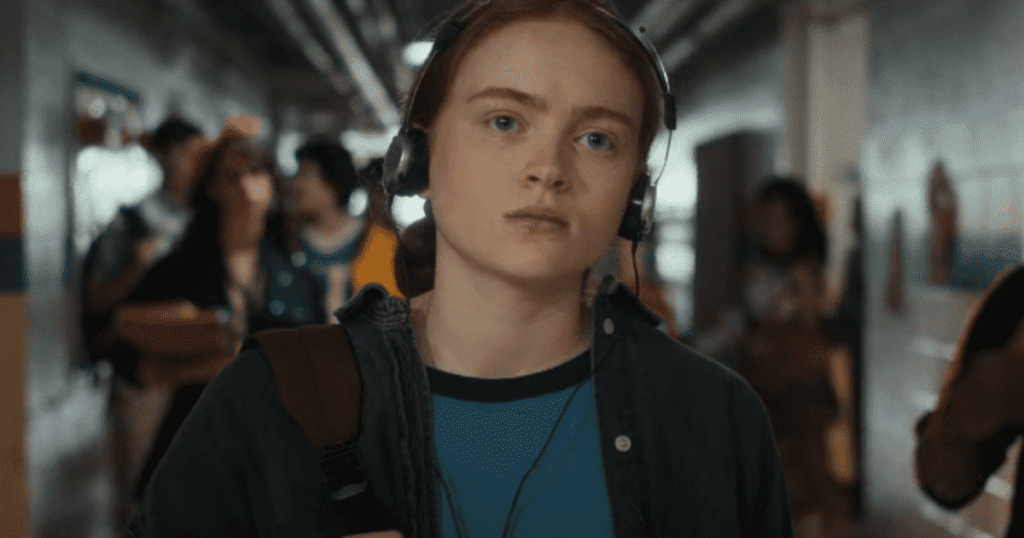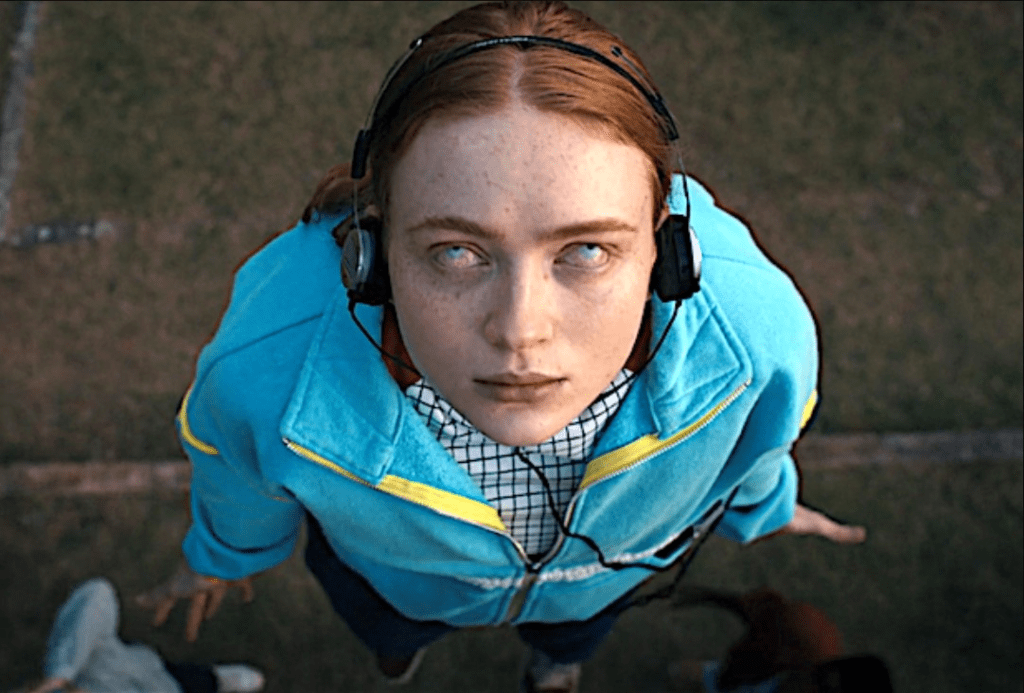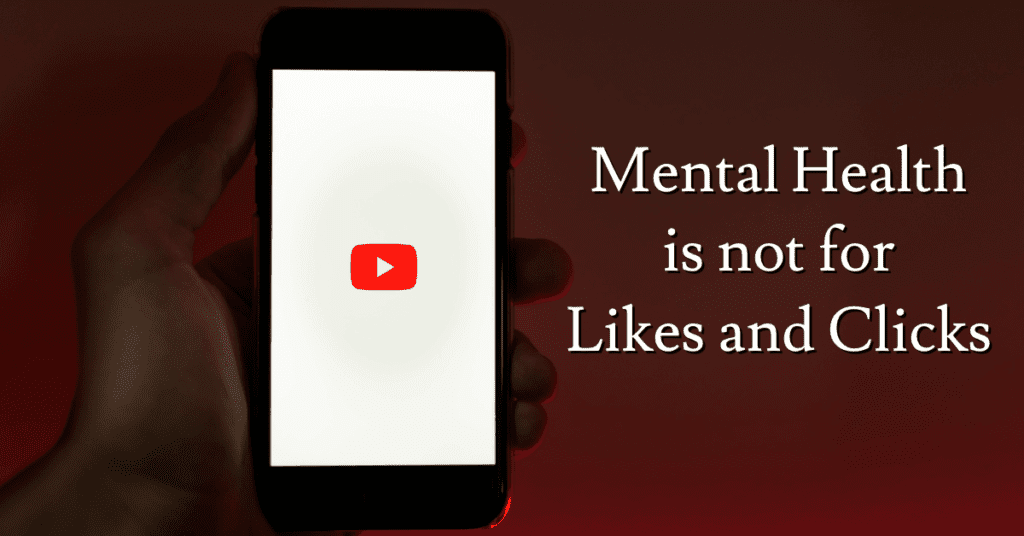Table of Contents
Mental health is all the rage these days. Finally, everyone’s talking about it.
But I question motives. And I question whether or not this will make anything better.
Running Up That Hill

Several months ago, the most recent season of Stranger Things was blowing up. And for reasons I didn’t understand at the time, one scene was getting all the attention.
In this scene (spoiler alert), one of the main characters (Max) was inches away from death, but was able to essentially will herself away from the inevitable by focusing on the great things in her life.
People were referring to this scene as “epic”. They were talking about it as one of the greatest moments in television history.
But I had to go rewatch it to try and figure out what all the talk was about. It’s not that I didn’t enjoy the scene. It’s that I didn’t see it as anything special or anything particularly memorable.
And I was even saddened that after rewatching, I still didn’t seem to see what was causing such a stir.
Stranger Things and Mental Health

So I flipped through the YouTube comment section, and I was shocked to find comment after comment about the show’s brilliant portrayal of the mental health struggle. And I know my opinion is extremely unpopular, but I didn’t and still don’t see the scene that way. I think many people have artificially inserted the scene’s interpretation for yet another hot topic that everyone’s now talking about.
Which is fine.
People are entitled.
But at the same time, I think there is a benefit to calling something as it is. I think a couple of major misconceptions exist here.
I don’t have research to back up my claims.
At the same time, I am saying what I’m saying with a whole lot of confidence.
Are You Actually Suffering?

The first major misconception: Those who are posting on YouTube are actually suffering.
Can I say this is false with absolute certainty?
Of course not.
But the fact is that most people who are suffering through any level of mental illness are not talking about it. In fact, that’s a big part of the problem.
Society has a tendency to glorify things. Or to even make them temporarily trendy.
And as much as it’s extremely important to put mental health at the front and center of the conversation, that doesn’t necessarily mean any meaningful change has occurred. Nor does it mean that the right people are benefitting from the fact that others are speaking about the important topic.
We love to pat ourselves on the back for the efforts we are making. But cheering on Simone Byles and writing a bunch of platitudes in YouTube comments, isn’t making the boy contemplating suicide or the girl crippled by anxiety think the world is on their side. No, they still feel alone. They still feel like there’s no one in the world with whom they could safely share their feelings.
The Internet is not a Safe Place

And when things get really bad, they’re not necessarily hitting the comments section to share their thoughts.
And that’s no surprise.
We can pretend all we want that the internet is where we go to safely emote. But the fact is, the internet has been a haven for bullying and anonymous obnoxiousness for decades now. Even if somehow society is coming around, that doesn’t erase the feelings that have been provoked repeatedly for years.
You can be nice to someone for months. But it’ll take way more than that to remove the emotions created by the one time you were unnecessarily harsh.
So you can talk all day long about your mental health issues in the comment section of a scene from a hit TV show. And if it’s making a difference, then that’s a great thing.
But I have trouble believing the ones who really need help are piling onto YouTube to tell this to the world.
Everyone’s Burden

Now, almost paradoxically, I’ve wondered in recent years whether or not nearly every person alive at some level is suffering from mental health issues.
There are so many hours of the day humanity is home alone with its thoughts. And those thoughts–that incessant noise–can be oppressive.
How can we not occasionally fall victim to the evils of depression? How can we not collapse in front of the challenges that face us on a day-to-day basis?
And when the challenges pile on and the anxiety starts pounding on our hearts, we start to feel alone. Like there’s no one in the world who can truly relate to us. Or like the problems we are facing cannot be solved. Or if we were to tell our issues to others, they simply wouldn’t take us seriously.
And the world cowers under the stigmas. Mental health concerns are some sort of weakness. Going to therapy means you have given up and are hoping someone else can swoop in to save you from life’s pervasive difficulties.
Crying on a friend’s shoulder will push them away. They don’t have time for that. You’re just a whiner who needs to pull it together!
But we’re all so very wrong.
We’re all suffering. Life’s difficulties are real. And there’s no shame in admitting this. We all go through what we go through, and we shouldn’t be expected to do so alone.
We're all suffering. Life's difficulties are real. And there's no shame in admitting this. We all go through what we go through, and we shouldn't be expected to do so alone. Share on XTake Back Your Life

Going to therapy is not a sign of weakness or giving up. It’s utter strength and a reaffirmation that you want to succeed at all costs. That life is important to you, and you don’t want your struggles to rule you. You wish to take back your life.
And your friends are all there for you. You need to know how much they love you and care for you. In the words of Paddy Pimblett, a UFC fighter shortly after a close friend took his own life: “I know I’d rather my mate cry on my shoulder than go to his funeral next week.”
The world is a tough place.
We’re all going through a lot.
But we’re not alone, even though it might feel like that all the time.
Mental health is no joke. It’s not something to wave around like a badge on social media. It’s something to be spoken about with those closest to you. It’s something we all need to come together to fight against.
And we need to win.
Everything’s at stake.




So well said!
Heart breaking words – my question, is therapy truly helping??? So many out there promise the world, just like finding a truly good physician, not all therapists succeed 🙁